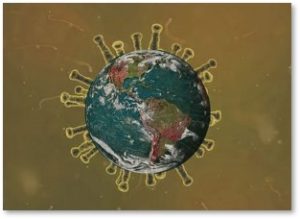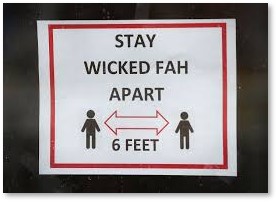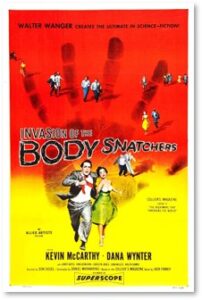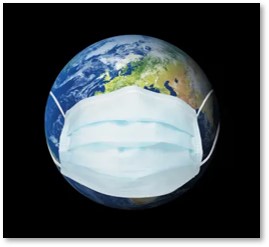 Of the many things the Covid-19 pandemic has taken from us, not the least is our sense of solidarity with fellow human beings. In what people are referring to as the Before Time, we smiled and shook hands, mingled with others, hugged loved ones, and sat happily among strangers in an audience.
Of the many things the Covid-19 pandemic has taken from us, not the least is our sense of solidarity with fellow human beings. In what people are referring to as the Before Time, we smiled and shook hands, mingled with others, hugged loved ones, and sat happily among strangers in an audience.
Now we look upon anyone not in our immediate circle as a possible disease vector. This applies to people we have known our whole lives, members of a community or a congregation, fellow gym rats, not to mention pedestrians and shoppers. Some we talk to at a safe distance, some we swerve around, and some we avoid altogether.
Perhaps that accounts for at least some of the low-grade depression that afflicts many people.
The First Incident
 This was first brought home to me when I was walking around our condo community in the early days of the lockdown. My neighbor was walking uphill on the sidewalk while I was heading down. Without really thinking about it, I just expected to pass her on the sidewalk. Instead, she went out into the street to loop by me in a 10-foot detour.
This was first brought home to me when I was walking around our condo community in the early days of the lockdown. My neighbor was walking uphill on the sidewalk while I was heading down. Without really thinking about it, I just expected to pass her on the sidewalk. Instead, she went out into the street to loop by me in a 10-foot detour.
In the seconds it took me to register that she was doing it as a safety measure, while I was being obtuse, I reacted negatively. It felt like a slap in the face. It felt like what society in the English Regency period would have called the Cut Direct. Then I remembered that it had nothing to do with me personally and that I should be more careful to do the same thing myself.
The Psychic Damage
Multiply that feeling by multiple encounters, more now that the lockdown has eased here in Massachusetts, and you understand the damage that this disease is doing to our sense of fellowship. Granted, it is psychic damage and not physical. Still, it feels bad.
Someone holds the door for you, a common gesture in the Before Time and one we did or had done for us multiple times a day. But to accept that open door is to get rather too close to the holder. So, you refuse the courtesy, step back and keep your distance.
The pervasive feeling is that our friends, acquaintances, colleagues, co-workers, and other members of our multiple communities cannot be approached, cannot be trusted.
They might look the same but they are, somehow, different.
The Covid-19 Body Snatcher
In the fifties, during the Cold War, Americans feared that Communists had infiltrated their communities. They looked askance at the people around them, even those who were familiar and trusted, and wondered if they had turned covertly into the Russian enemy.
 Hollywood seized upon this theme and created movies, many of them science fiction, that expressed the fear in different ways. The 1956 movie, Invasion of the Body Snatchers, provides an excellent example. In the film, a small-town doctor learns that the population of his community is being replaced by emotionless alien duplicates.
Hollywood seized upon this theme and created movies, many of them science fiction, that expressed the fear in different ways. The 1956 movie, Invasion of the Body Snatchers, provides an excellent example. In the film, a small-town doctor learns that the population of his community is being replaced by emotionless alien duplicates.
The aliens served as a stand-in, metaphors for the unseen Communist menace. This frightened many Americans simply because the movie’s characters couldn’t tell who was still human and who was just a human body being driven by an alien mind. They lost trust in others while also fearing for their own identities and lives.
Insidious Covid-19 Threats
 Something of the same thing happens now as we feel at a fundamental level that people have turned into Covid-19 threats. Inside that other body, behind that other face, might lurk a highly communicable and often deadly virus. If we catch it, Covid-19 could change our lives — or end them.
Something of the same thing happens now as we feel at a fundamental level that people have turned into Covid-19 threats. Inside that other body, behind that other face, might lurk a highly communicable and often deadly virus. If we catch it, Covid-19 could change our lives — or end them.
The need to wear masks—and we DO need to wear masks—amplifies this unease. Smiles disappear behind masks. Conversations stumble as the mask garbles a speaker’s words. Glasses fog up so you can’t see well. The mask protects others and you but it also puts up a barrier to interpersonal relations.
Our Friends Are Not Enemies
What to do? Well, we really have no options until a combination of masking, social distancing, hand washing, a safe vaccine and herd immunity bring the pandemic to a halt. I just hope that, when we reach that much-desired point, we remember what Americans relearned when the Cold War had ended — that other people are not the enemy.
